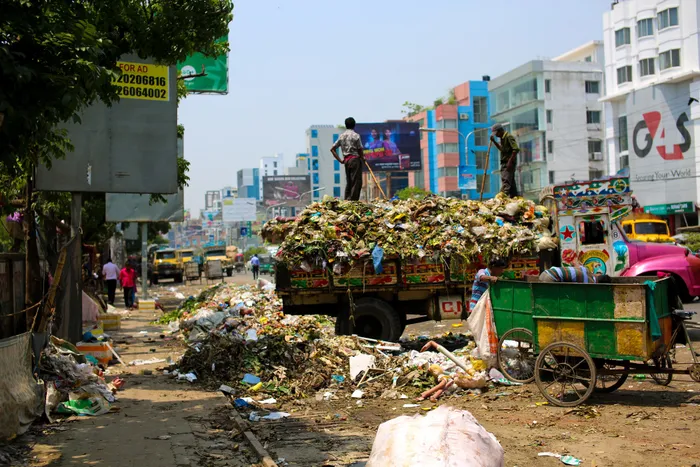How you can help curb the scourge of food wastage

Food scraps. Picture: Kelly L/Pexels
The amount of food wasted globally is staggering, with South Africa being no exception. While food wastage occurs along the supply chain from farmer to consumer, families could be doing far more to avoid wasting food at home. By doing so, they not only benefit financially through a reduction in their grocery bills; they also contribute to a cleaner environment and help the needy.
In 2020, the World Food Programme estimated that about a third of food produced globally, or about 1.3 billion tons a year (worth about $1 trillion), goes to waste. It calculated that all the food produced but never eaten would be sufficient to feed two billion people – more than twice the number of undernourished people across the globe.
In this country, in a paper published in 2013, Anton Nahman and Willem de Lange estimated that South Africans wasted about 10.3 billion tons of food a year, equating to about 2.2% of the GDP.
Cutting global food waste in half by 2030 is a top priority of the United Nations. In fact, it's one of the organisation's 17 Sustainable Development Goals, to which South Africa is a signatory.
There have been various initiatives to raise awareness and reduce food wastage in South Africa, including the Operation Phakisa Chemicals and the Waste Economy programme, the South African Food Waste Initiative Voluntary Agreement, and the Food Waste Prevention and Management Guideline for South Africa.
Last week, in furthering efforts towards these goals, the Department of Environment, Forestry and Fisheries released the Draft Strategy for Reducing Food Losses and Waste for public comment.
Garyn Rapson, a partner, and Lerato Molefi, an associate at law firm Webber Wentzel, unpacked the draft strategy in a press release.
“South Africa’s proposed food losses and waste strategy is a comprehensive plan, which is one of the key interventions of the National Waste Management Strategy,” Rapson and Molefi stated. Key aspects are:
- Prevention and reduction: The strategy prioritises the prevention and reduction of food losses and waste at all stages of the supply chain. This includes supporting sustainable agricultural practices, improved storage facilities and efficient distribution systems. “Reducing food loss and waste at the source, from farm to fork, is both cost-effective and environmentally responsible,” Rapson and Molefi say.
- Behaviour change through education: Central to the strategy’s success is changing consumer behaviour. It is essential to raise awareness about the consequences of food waste and the importance of responsible consumption.
- Partnerships: The collaboration of various stakeholders, including government agencies, food producers, retailers and NGOs, is crucial to implementing effective food waste reduction initiatives.
- Regulation and incentives: The strategy explores the possibility of regulations and incentives to encourage responsible practices.
- Monitoring and reporting: Robust monitoring and reporting mechanisms are pivotal for tracking progress and holding stakeholders accountable. Identifying areas with the highest food losses and waste will help in tailoring effective interventions.
Rapson and Molefi say the implementation of this strategy has significant benefits, including:
- •Resource conservation: By reducing food losses and waste, South Africa can conserve valuable natural resources used in food production, including water, energy and land. It also reduces greenhouse gas emissions from decomposing food waste in landfills.
- Economic savings: Less food waste translates into economic savings for households, businesses and the nation.
- Food security: By mitigating losses in the supply chain, more food can reach the hungry. “This is vital,” say Rapson and Molefi.
What consumers can do
The Food Waste and Prevention Guideline for South Africa, published in 2021 by the Department of Environment, Forestry and Fisheries and the Council for Scientific and Industrial Research, estimates that each person in the Johannesburg area throws away 12kg of food a year on average. For well-off households, the figure may be much higher: in Europe and the US, the average person wastes about 100kg of food annually.
Here are some ways households can reduce their food wastage:
- Planning. Plan your meals ahead, taking stock of what you already have. Make a shopping list in conjunction with your meal planning.
- Shopping. Stick to the shopping list, avoiding impulsive buying. Buy fruit and vegetables that are in season, and don’t buy more than you need.
- Storage. Store food in the appropriate conditions, at the correct temperatures. Always keep your storage places organised.
- Preparation and consumption: Avoid making too much food and serve moderate portions.
- Leftovers. Store leftovers in an airtight container and refrigerate or freeze. Look for creative ways to use your leftovers in subsequent meals.
- Composting. Food scraps and peelings can be composted for use in your garden or for nourishing your pot plants.
- Giving. Give away what you don’t eat – to needy people around you or a nearby charity – instead of just chucking it in a bin.
Personal Finance